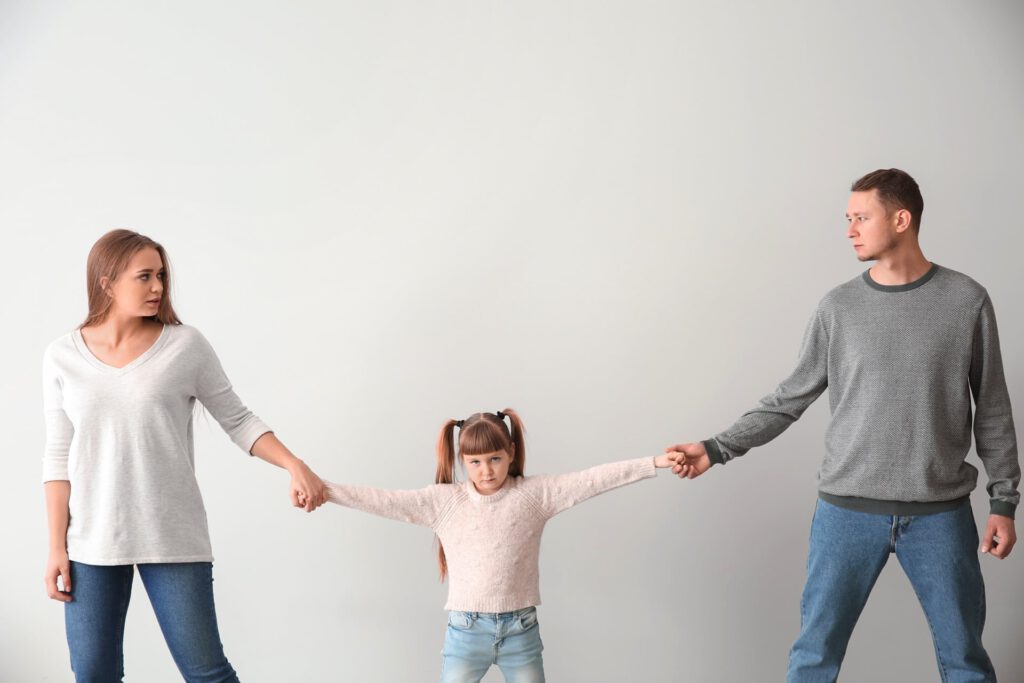Divorce is a difficult transition for any family, and no one experiences those tough changes more than the children. Custody, child support, and a visitation schedule are all important elements of a divorce or separation plan that must be worked out by agreement or court order before the end of the marriage. Having a plan for how the children will be cared for is an excellent way to provide a semblance of structure in their lives during a time of fluctuation and uncertainty. There are many ways in which parents can share custody of their children, and they all involve understanding the difference between legal and physical custody.
Physical Custody
Physical custody is usually the first thing that comes to mind when thinking of child custody. It refers to where and with whom the child physically lives. Physical custody can be with either one sole parent or both parents jointly. Sole physical custody involves one parent caring for the child most of the time, while the other parent has visitation rights. Visitation rights are not always guaranteed, however, and it is up to the court to determine whether a parent is stable enough for visitation.
This is because physical custody is based on “The best interests of the physical, mental and moral welfare of the child." The court will grant physical custody after evaluating each parent based on those criteria. Some of the things the court will look at include:
- The wishes of each parent and sometimes the child, depending on their age
- The mental and physical health of each parent
- Past or present instances of physical abuse, drug abuse, or criminal actions
- The proximity of each parent to the child’s school and community
- Which parent is most likely to provide a safe and stable home environment
Legal Custody
Legal custody, on the other hand, refers to the parent’s ability to make legal decisions on behalf of their child. Legal custody is always granted to the parent with physical custody but can be given to or withheld from to the other parent. With legal custody, a parent can decide where their child will live, what medical treatments they will receive, and what religious community they will be raised in. If the parents live a great distance away from each other, it is common for one to have physical custody while they both retain legal custody.

